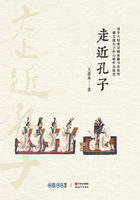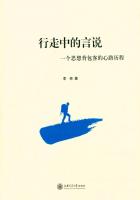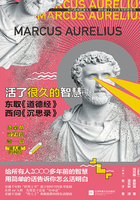Now there is no intermediate between the terms of either of these two pairs. On the other hand, in those contraries with regard to which no such necessity obtains, we find an intermediate. Blackness and whiteness are naturally present in the body, but it is not necessary that either the one or the other should be present in the body, inasmuch as it is not true to say that everybody must be white or black. Badness and goodness, again, are predicated of man, and of many other things, but it is not necessary that either the one quality or the other should be present in that of which they are predicated: it is not true to say that everything that may be good or bad must be either good or bad. These pairs of contraries have intermediates: the intermediates between white and black are grey, sallow, and all the other colours that come between; the intermediate between good and bad is that which is neither the one nor the other.
Some intermediate qualities have names, such as grey and sallow and all the other colours that come between white and black; inother cases, however, it is not easy to name the intermediate, butwe must define it as that which is not either extreme, as in thecase of that which is neither good nor bad, neither just nor unjust.
(iii)"privatives" and "Positives" have reference to the same subject. Thus, sight and blindness have reference to the eye. It is a universal rule that each of a pair of opposites of this type has reference to that to which the particular "positive" is natural. We say that that is capable of some particular faculty or possession has suffered privation when the faculty or possession in question is in no way present in that in which, and at the time at which, it should naturally be present. We do not call that toothless which has not teeth, or that blind which has not sight, but rather that which has not teeth or sight at the time when by nature it should. For there are some creatures which from birth are without sight, or without teeth, but these are not called toothless or blind.
To be without some faculty or to possess it is not the same as thecorresponding privative or positive. Sight is a positive, "blindness" a "privative", but "to possess sight" is not equivalent to "sight", "to be blind" is not equivalent to "blindness". Blindness is a "privative", to be blind is to be in a state of privation, but is not a "privative". Moreover, if "blindness" were equivalent to "being blind", both would be predicated of the same subject; but though a man is said to be blind, he is by no means said to beblindness.
To be in a state of "possession" is, it appears, the opposite of being in a state of "privation", just as "positives" and "privatives" themselves are opposite. There is the same type of antithesis in both cases; for just as blindness is opposed to sight, so is being blind opposed to having sight.
That which is affirmed or denied is not itself affirmation or denial. By "affirmation" we mean an affirmative proposition, by "denial" a negative. Now, those facts which form the matter of the affirmation or denial are not propositions; yet these two are said to be opposed in the same sense as the affirmation and denial, for in this case also the type of antithesis is the same. For as the affirmation is opposed to the denial, as in the two propositions "he sits", "he does not sit", so also the fact which constitutes the matter of the proposition in one case is opposed to that in the other, his sitting, that is to say, to his not sitting.
It is evident that "positives" and "privatives" are not opposed each to each in the same sense as relatives. The one is not explained by reference to the other; sight is not sight of blindness, nor is any other preposition used to indicate the relation. Similarly blindness is not said to be blindness of sight, but rather, privation of sight. Relatives, moreover, reciprocate; if blindness, therefore, were a relative, there would be a reciprocity of relation between it andthat with which it was correlative. But this is not the case. Sight isnot called the sight of blindness.
That those terms which fall under the heads of "positives" and "privatives" are not opposed each to each as contraries, either, is plain from the following facts: Of a pair of contraries such that they have no intermediate, one or the other must needs be present in the subject in which they naturally subsist, or of which they are predicated; for it is those, as we proved," in the case of which this necessity obtains, that have no intermediate. Moreover, we cited health and disease, odd and even, as instances. But those contraries which have an intermediate are not subject to any such necessity. It is not necessary that every substance, receptive of such qualities, should be either black or white, cold or hot, for something intermediate between these contraries may very well be present in the subject. We proved, moreover, that those contraries have an intermediate in the case of which the said necessity does not obtain. Yet when one of the two contraries is a constitutive property of the subject, as it is a constitutive property of fire to be hot, of snow to be white, it is necessary determinately that one of the two contraries, not one or the other, should be present in the subject; for fire cannot be cold, or snow black. Thus, it is not the case here that one of the two must needs be present in every subject receptive of these qualities, but only in that subject of which the one forms a constitutive property. Moreover, in such cases it is onemember of the pair determinately, and not either the one or the other, which must be present.













